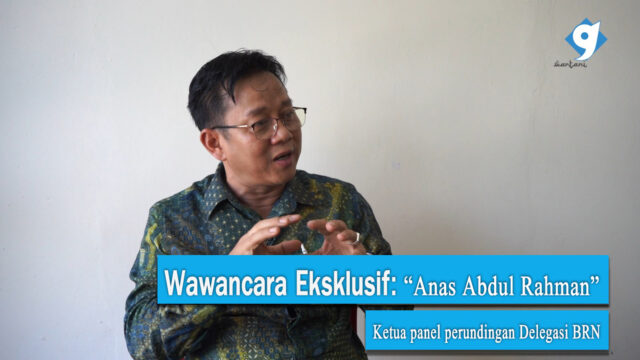
Anas Abdulrahman: Ethnic Malay Muslim Militant Leader Fails to Rein in Insurgents in Southern Thailand
Publication: Militant Leadership Monitor Volume: 16 Issue: 3
By:

Executive Summary:
- In February 2024, negotiations between Thailand and Anas Abdulrahman, a leader of the ethnic Malay Muslim militant group Barisan Revolusi Nasional (BRN), raised hopes that the region’s ongoing insurgency could be brought to an end. Since then, Abdulrahman has shown little ability to compel his own militants to follow through with a ceasefire. As a result, violence in southern Thailand continues unabated.
- Thai officials now view Abdulrahman as a weak player with insufficient influence over his movement to effect real change. As a result, Bangkok has turned increasingly toward working with Malaysian negotiators. This appears unlikely to work, as the latter have even less influence over the ethnic Malay Muslim militant movement.
In February 2024, Anas Abdulrahman, a leader of the Barisan Revolusi Nasional (BRN), an ethnic Malay Muslim militant group, met and agreed with Thai authorities on a “joint comprehensive plan.” This plan would, in theory, lead to a roadmap for peace in southern Thailand. Abdulrahman rejected the hardline position held by some militants in the “Patani insurgency,” with Patani referring to Thailand’s south. Some of these insurgents call for independence from Thailand and the establishment of their own state, citing alleged ostracization of Malay Muslims in predominantly Buddhist Thailand. Rather, Abdulrahman’s focus has been on “identity, economic and developmental issues, human rights, education, culture, and the security system,” which would allow ethnic Malay Muslims to secure a place within the Thai state (Benar News, February 7).
In 2024, there was optimism from both Abdulrahman and his Thai counterparts that a “lasting solution” would be found (Associated Press, February 7, 2024). However, just over a year and a half later, Abdulrahman is nowhere to be seen, while Thai officials look to quell violence in the country’s three southern provinces. Thai officials believe everyone with whom they have negotiated, including Abdulrahman, is incapable of reining in the region’s militants. This situation took on heightened urgency when Malay Muslim militants in southern Thailand conducted more than 10 bombings and six shootings of civilians before Ramadan in April (Bangkok Post, May 11).
The southern Thai insurgency is increasingly decentralized. The turning point in Thailand’s awareness of this new reality was when Abdulrahman engaged in “shuttle diplomacy” in February with Thailand’s National Security Council head to implement a Ramadan ceasefire (Benar News, March 14). Despite these efforts, the BRN leader was unable to follow through with securing a ceasefire, and southern Thailand was wracked by a series of attacks during Ramadan. Although Thai government officials ruled out the possibility that Abdulrahman had collaborated with the militants to add pressure in support of his position in negotiations, the attacks still demonstrated how little control the rebel leader has over violence on the ground (Khaosod, March 9).
As a result of Abdulrahman’s inability to rein in either the BRN or the more hardline insurgents, the Thai government is refusing to conduct further negotiations with him. Rather, the Thai government is leaning on the Malaysian government’s facilitators to work with the BRN and other factions to follow through on a ceasefire (The Nation [Thailand], April 30). If Abdulrahman was unable to convince his own men to follow a ceasefire, it seems less likely that the Malaysian government, which is quite removed from the violence on the ground, can have an impact. Abdulrahman may not have as much influence over the insurgents as his interlocutors initially believed, but he may eventually prove to be the “least-worst” option for Thai officials seeking a negotiated solution to the smoldering insurgency in the country’s south.



